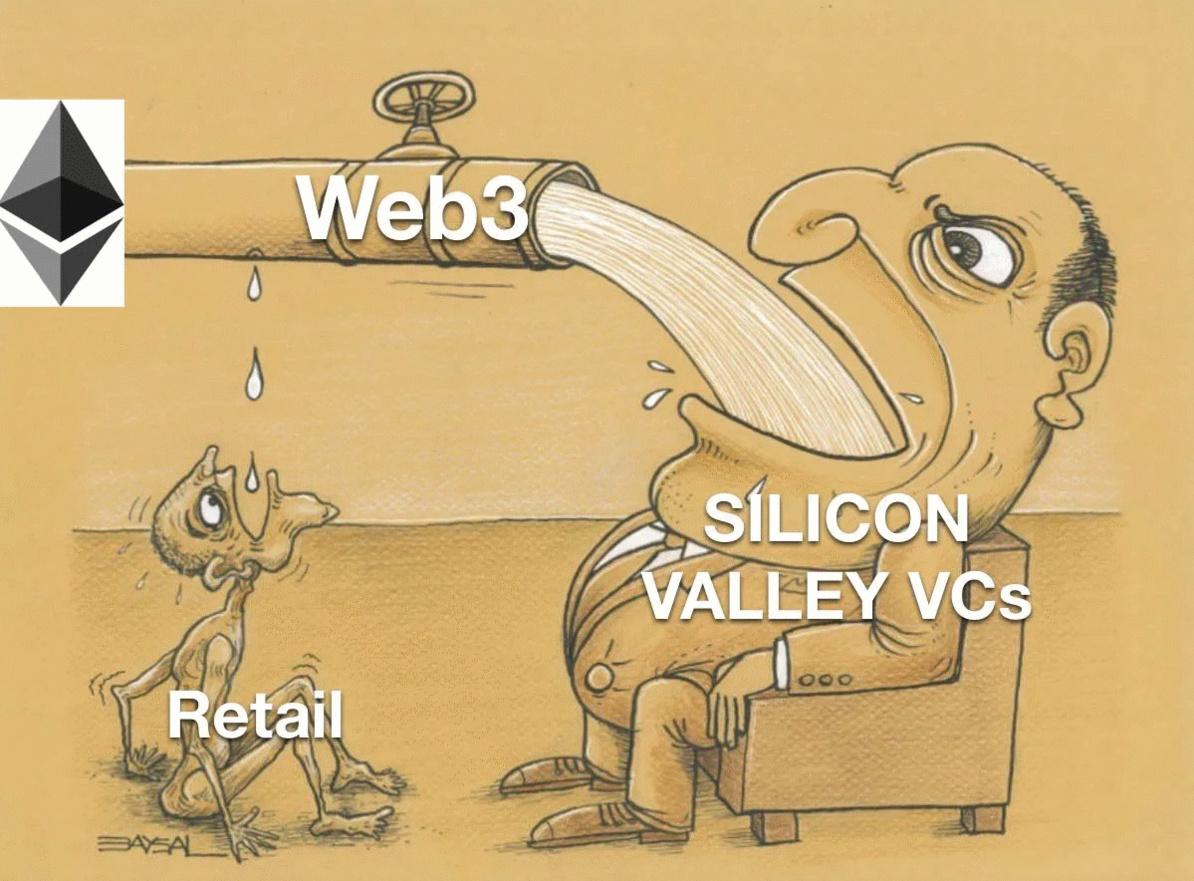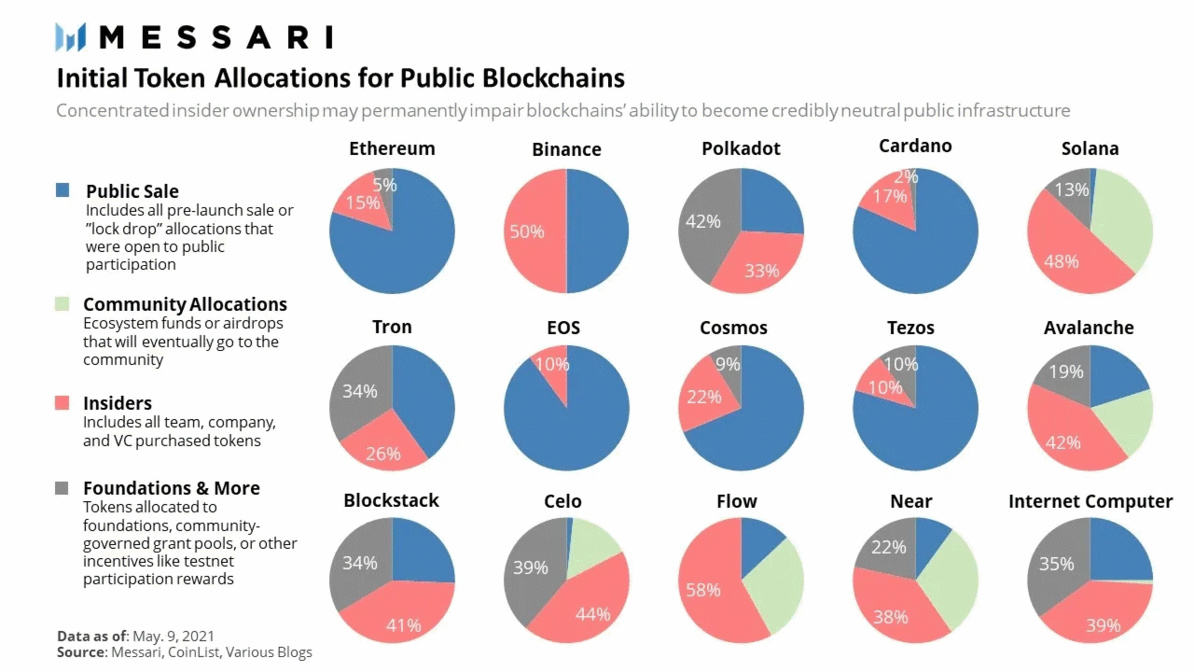Ethereum will shape the global app economy
03/01/2022
With the Christmas holidays, you may have missed all the hubbub that followed Jack Dorsey’s tweet that basically said that Web3 is not the decentralized dream that everyone claims it is, and instead is a hustle pushed by venture capitalists to line their pockets. Dorsey wrote: “You don’t own Web3. The VCs and their LPs do. It will never escape their incentives. It’s ultimately a centralized entity with a different label. Know what you’re getting into…” A few days later Jimmy Song wrote an interesting piece and said “The advent of the token sale allowed VCs to get into a token at an early stage, but get liquidity on their assets much earlier than the 7-10 year windows typically needed in a VC-funded firm. Sure, you end up selling useless junk to the broader public, but who cares if you make money?” He also added that VCs are “middlemen that capture lots of value while not adding much.” As you can imagine this caused a big stir and exposed a deep rift over the direction of crypto.
The fight for Web3 is on. Over the last year, we’ve seen an incredible combination of talent and capital flow into the Web3 ecosystem. In 2021, venture capitalists invested more than $30 billion in crypto startups.
But Web3 is just getting started. When you compare decentralized applications to the traditional financial world and to Web2, they are still only a drop in the bucket.
Web3, a term that was coined by Ethereum co-founder Gavin Wood in 2014, represents the biggest technological innovation since the Internet. Supporters say Web3 apps will democratize and decentralize commerce, finance, gaming, and more. Many of these applications rely on smart contracts and require their own unique tokens.
A chart from Messari shows blockchains with their own tokens, like Solana, Binance, Avalanche, Celo, Blockstack, Flow, Internet Computer, and Near to have allocated over 38% of their tokens to VCs and other insiders. Maybe Jack has a point?
Ethereum is generally considered the most decentralized smart contract platform and many think that its perfectly suited to serve as the backend to a decentralized, secure internet.
Ethereum pioneered smart contracts, programs that allowed developers to build decentralized applications (DApps) without building a blockchain network from scratch. Not only smart contracts, but Ethereum also gave birth to non-fungible tokens (NFTs) and decentralized finance (Defi) space.
The entire network settles trillions of dollars in transactions annually, with over $170 billion locked on the platform.
Yorke Rhodes, Microsoft’s Director of Digital Transformation tweeted back in August that Ethereum will become the decentralized App Store or marketplace of Web3 by 2023.
Ethereum could be the Web3 operating system that directly connects developers and end-users, with huge benefits for both. While the DApp market has a long way to go before it reaches the same levels as Apple’s App Store or Google Play Store, it is growing at a healthy pace. According to State of the DApps, there are close to 3,000 decentralized applications deployed on Ethereum. These include everything from games, decentralized exchanges, wallets, crypto lending, and borrowing platforms, payment solutions, NFT platforms, and financial applications, and other apps. This is more than the number of DApps deployed on any other blockchain in the world, combined.
While Ethereum has all the stuff to be the top player in the distribution of DApps, it has faced fierce of competition from newer blockchains like Solana and Polkadot.
To get there and truly shape the app economy, Ethereum needs to scale even further, but Rhodes’ is right about Ethereum and its potential to be the perfect distribution platform for decentralized apps.
Apps are the center of the digital economy and will continue as we progress toward to decentralized world. The beauty of a decentralized app store is that even Ethereum wouldn’t be able to reject an app, demand big revenue cuts, or not give the developers permission to add a feature. Instead of paying the app store for the right to sell an app, the developers will be able to develop and market their products securely and cheaply.
As we transition from Web2 to Web3, the existing gatekeepers will dig in and try to maintain their positions, but when we fully transition we will see a vibrant ecosystem of DApps that will be even more focused and serve smaller niches.
Happy New Year!
Ilias Louis Hatzis is the founder and CEO at Kryptonio wallet. Create your wallet in less than a minute, without seed phrases, private keys, passwords or documents. Keep your bitcoin and digital assets always secure and recoverable: https://kryptonio.com
I have no positions or commercial relationships with the companies or people mentioned. I am not receiving compensation for this post.






